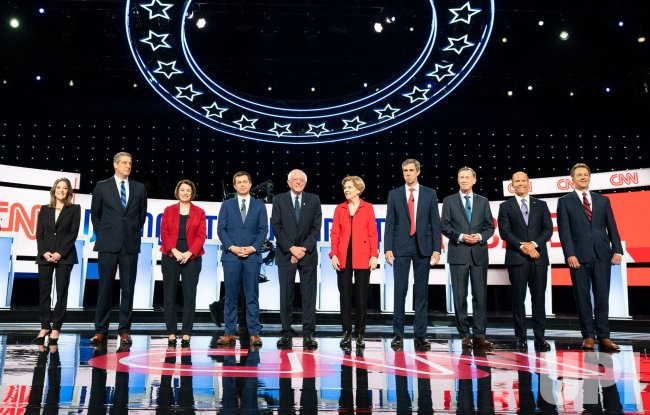Democratic Candidate Debate Analysis
Here are some observations from the first night of the second series of debates.
Eight of ten democratic candidates on the stage were from rural areas of the United States. This makes a lot of sense since Donald Trump won the Electoral College with the power of the rural vote. The Electoral College hails back to the earliest days of our republic. James Madison was concerned about dominating factions who would operate at the expense of the country as a whole. The pioneers of America pushed west, and faced dangers on their lives, liberty, and property. The lack of judicial adjudication in these western borderlands was a primary cause of the Revolutionary War. The Proclamation Line of 1763 gave American pioneers notice that England was going to side with Native American over the colonists on property arguments. Rural people receive over representation in our government. If you compare the state of Wyoming with Los Angeles California, then Wyoming residents get 1000 times more representation and voter impact than Los Angelos residents. The over-representation of the senate makes our government inefficient and biased toward rural America. As a result, the candidates I saw yesterday are beginning to include rural rhetoric in their speeches and responses.
One candidate from my home state of Pennsylvania was not allowed on the stage the first night. Admiral Joe Sestak entered the race late, and did not make the cut for the second debate. I feel Joe deserves some consideration because Pennsylvania is a key swing state in the Presidential election. Hillary Clinton bet the house on Pennsylvania, and lost Pennsylvania and the country in the last presidential election. Joe Sestak deserves to be on the stage because he is from such a crucial state. Pennsylvania is more than a swing state, it is also a bell-weather state that can predict the outcome of the next presidential election.
Political polarization has become a biporduct of economic geography and population density. In the Keystone State the Republican "T" is formed when Pittsburgh and Philadelphia are removed from the state. People in rural areas tend to be Republican. In 2017 people have began to migrate away from metro areas in major cities. Since most of these cities are in the northeast and mid-west, they are also over-represented in the senate and the electoral college. In Pennsylvania as well as the nation party divisions are becoming based on rural versus urban, instead of conservative versus liberal.
I had spent 20 years in rural western Pennsylvania. People that live in these areas face challenges that people in urban areas do not face. Sometimes they need to dig a well to get water, dig a septic system to remove waste, drive once a week or a month to do grocery shopping, and face snow and grass maintenance ten times more than in urban and suburban areas. They tend to have a pioneer spirit that encourages canning, clothing exchanges, and versatile vehicles like trucks. When a suburban person takes a drive, they may be just trying to get out of the house. Rural folks bundle their runs by swinging by a wood lot on their way home from work to pick up another month of firewood. This survival can-do attitude keeps society simple, and not prone to complex solutions to problems. Political solutions like Trump's border wall resonate with many of them.
In a few years we may be changing party names from Republican and Democrat to Rural and Metro. We need visionary leaders who will embrace the rural vote, and incorporate the pioneer can-do spirit into a vision where individual initiative and hard work are rewarded for everyone.






